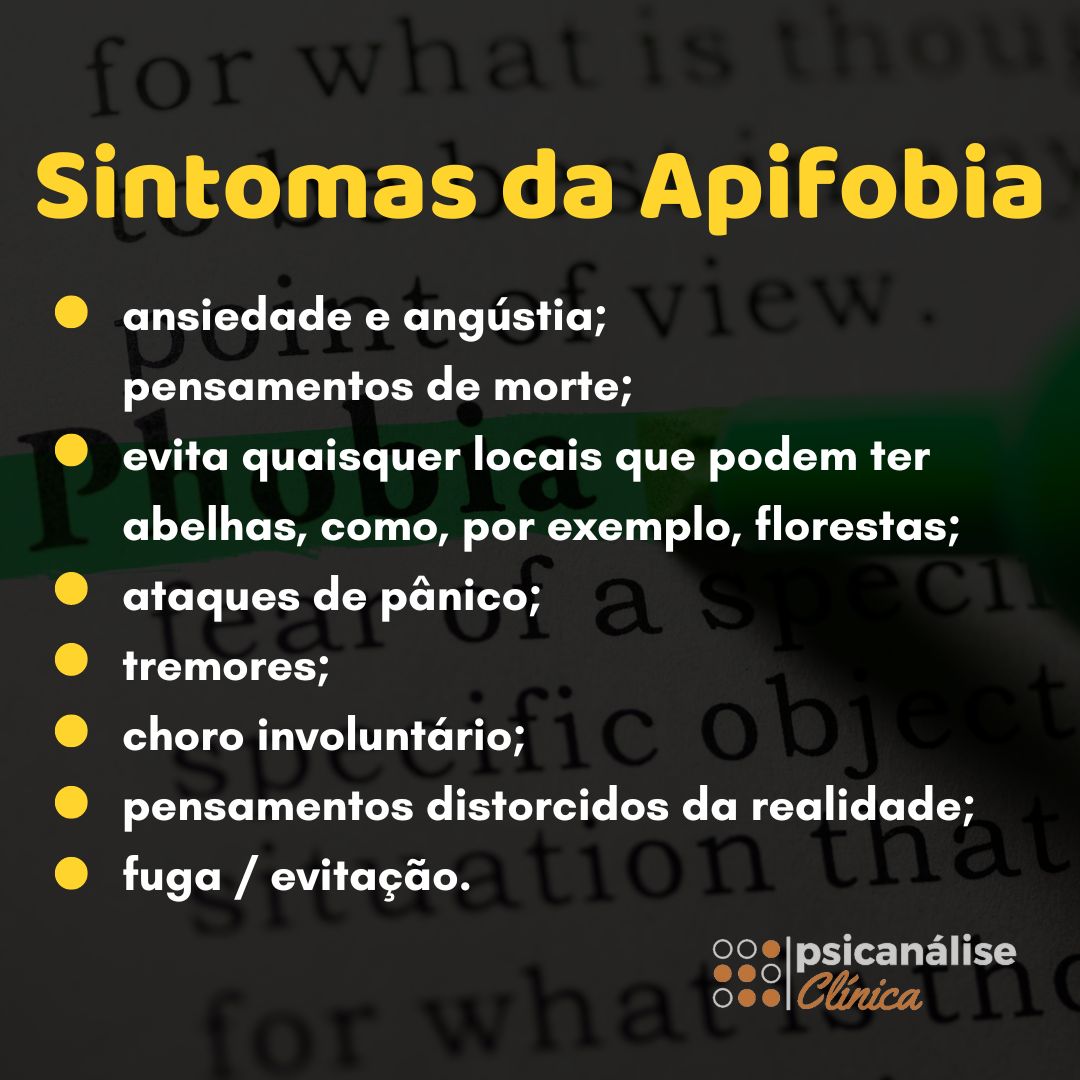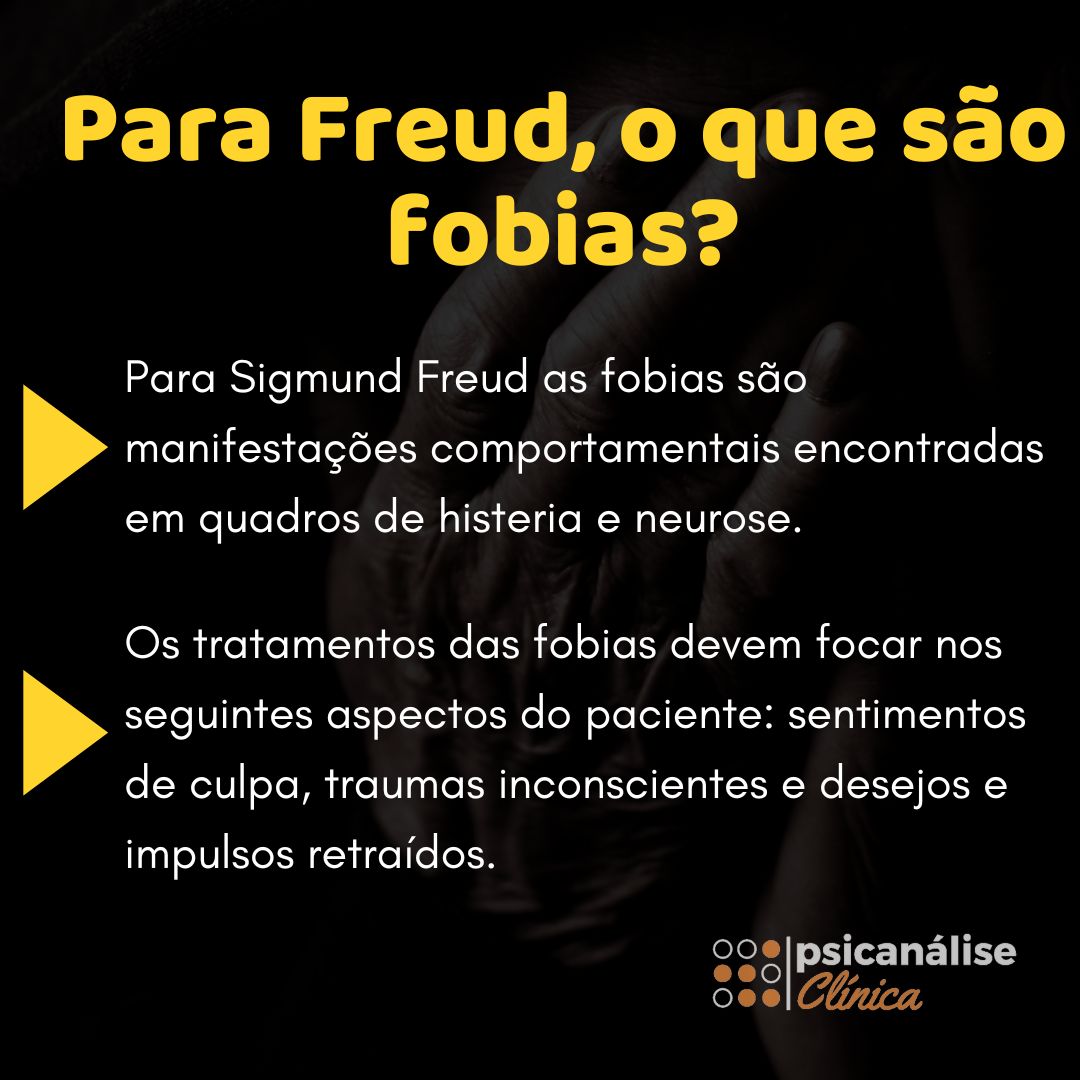Table of contents
Apiphobia also known as melissophobia, is a specific phobia, characterized by terrifying, exaggerated and irrational fear of bees Many people develop insect phobias, zoophobias, and apiphobia is one of these specific phobias.
To a certain extent, it is common to be afraid of bees, mainly for fear of the pain of a sting. However, in the case of apiphobia, the person develops anxious pictures only at the thought of bees, triggering responses that feel as if they have received a sting. In other words, the common fear of being stung by bees turns into something paralyzing.
Many times the bee phobia is developed due to people's lack of knowledge, since bees are peaceful insects, besides being fundamental to the cycle of nature. So, to learn more about this specific phobia, check in this article its meaning, causes, and treatments.
Meaning of apiphobia
The word apiphobia is derived from the Latin api which means bee and, from Greek phobos This phobia can also be of wasps or moths.
This phobia is also known by the word melissophobia, which comes from the Greek melissa which means bee.
See_also: Self-acceptance: 7 steps to accept yourselfWhat is apiphobia?
The fear of bees, in general, occurs due to people's lack of knowledge, because most people do not understand that bees attack in defense. That is, in the midst of a dangerous situation, or their hive or when, for example, they are crushed, they use their means of defense, which is their sting.
However, for the phobic, this reasoning may not be possible. After all, the person who suffers from this phobia cannot measure the reasonableness of his fear of bees, which may come from personal factors, according to his life experiences.
In short, the apiphobia is a specific phobia, characterized by a horror of bees, such that it is paralyzing Extreme fear and anxiety cause the person to avoid contact with bees or other flying insects that are similar to bees, such as wasps and moths.
In this picture, the person, just by thinking about a bee, develops physical and mental symptoms, over which he has no control. Thus, he ends up conditioning his life situations to avoid, at all costs, any stimulus on the subject of bees.
Although one might imagine that this phobia is not a serious problem, after all, it is enough to avoid contact with bees, in advance, it is worth emphasizing that phobias are a disorder of the mind. Therefore, it is important to seek a mental health specialist, so that the symptoms do not impair a person's life.
Symptoms of bee phobia?

The symptoms of phobias, in general, develop similarly, with variations according to the specific phobia, with the phobic stimulus. These symptoms can be physical, cognitive and/or behavioral .
In this sense, the symptoms that are characteristic of those who suffer from apiphobia are:
- anxiety and anguish;
- thoughts of death;
- avoids any places that may have bees, such as forests;
- panic attacks;
- tremors;
- increased heart rate;
- difficulty in breathing;
- hysteria;
- faint;
- sweating
- involuntary crying;
- distorted thoughts of reality;
- escape / avoidance.
Most of the time, those who suffer from apiphobia recognize that their fear of bees is disproportionate, because they are not in a dangerous situation. However, cannot control their emotions and behavior .
Main causes of bee dread
Phobias are a response of our brain to being stimulated by something that the mind, even if unconsciously, understands will present danger to it. And this is due to several factors, such as genetics, environment, culture, and personal experiences.
Meanwhile, among the main causes for the development of apiphobia The connection to traumatic experiences related to bees, especially childhood traumas that have, in a way, endangered the life of the phobic or someone close to him.
I want information to enroll in the Psychoanalysis Course .
See_also: Songs about Racism: top 25 listRead Also: Needle fear: what is it, how to lose the fear?
Also, the fear of bees can originate simply from the learning that the person has always had to avoid the insect, in view of the possible harm it could cause him. Thus, he ends up developing, albeit unconsciously, socially conditioned responses. For example, parents show an intense fear of bees, and as a result, the children end up fearing them.
Treatments for fear of being stung by bees
Many times people who suffer from apiphobia do not seek professional help, perhaps because they are unaware of it, or even because they do not feel comfortable exposing their fears. Thus, they end up making the illness more serious, developing even more serious mental disorders.
Beforehand, know that there are adequate treatments for curing or even controlling bee phobia So if you have some of the symptoms shown here, be sure to seek help from a mental health professional.
Among the main treatments for apiphobia are therapy sessions, where the professional will apply techniques that will act directly on the reduction of phobic pictures. He will find the causes of the development of the phobia, under an individualized view, so that, in this way, it is possible to act directly on the focus of the disease and means to cure it.
Also, in the most severe cases of phobia, it may be necessary to prescribe psychiatric drugs, such as antidepressants and anxiolytics.
How can psychoanalysis help in the treatment of apiphobia?
For the Psychoanalysis, phobias develop due to problems arising from the unconscious mind. Thus, for Sigmund Freud, known as the "father of Psychoanalysis", phobias are behavioral manifestations found in hysteria and neurosis.

Thus, according to his theory of human development, the treatments for phobias should focus on the following aspects of the patient: feelings of guilt, unconscious traumas, and withdrawn desires and impulses, so that the phobia can be understood and overcome, or at least controlled.
However, it is important to point out that those who suffer from apiphobia need proper treatment, because it can have a devastating effect on the phobic. In other words, their quality of life can be totally affected, as well as that of the people they live with.
Therefore, we cannot fail to emphasize that if you are suffering from any kind of phobia, you should seek professional help. Do not try to work around your problems on your own, because the results for your mental health can be severe, leading your pathology to extreme pathologies.
However, if you have reached the end of this article on apiphobia, you may have a great interest in the study of the human mind. For this reason, we invite you to get to know our Training Course in Clinical Psychoanalysis. With this study, you will learn how the human psyche works and how phobias develop, from a psychoanalytical perspective, learning how to interpret thoughts and behaviorshuman, and help people in the treatment of psychopathologies.
Finally, if you enjoyed this article, be sure to like and share it on your social networks. This will motivate us to continue always producing quality content for our readers.
I want information to enroll in the Psychoanalysis Course .
